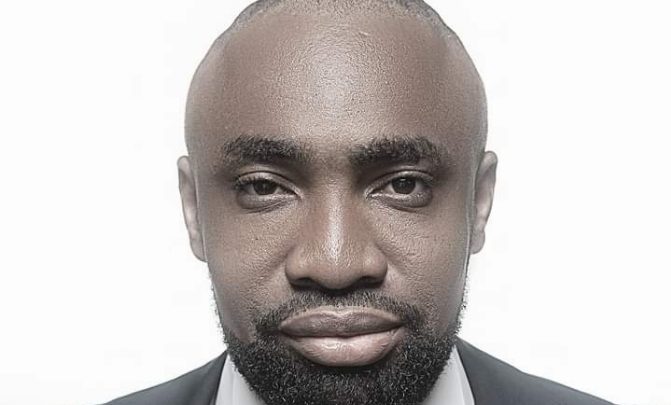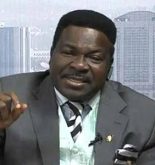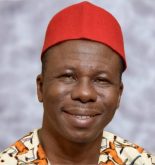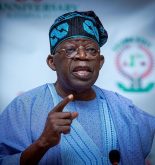By Edidiong Udobia
Imagine Nigeria! A country where poverty, hunger, insecurity, poor justice system, collapsed education, broken infrastructure, and every thinkable aftereffect of perennial bad leadership largely rest on the shoulders of young people, yet a frail looking octogenarian goes on a national television to scream “emi lo kan” (it is my turn), apparently laying sole claim to the country’s presidency. Then on the other side of the divide is a 76 year old corruption-ridden presidential candidate who is not only leading an opposition againt the ruling party but also against everything that is in the country’s best interest – unity, accountability, transparency, power rotation, inclusiveness, affordable life, etc.
For millions of Nigerians who are unfortunate to be in the trenches at a time the country is at the rock bottom of every economic indices globally, it would be a fatal disaster should Nigeria not catch a glimpse of hope from the outcome of the 2023 presidential election. It is therefore difficult to choose which is a more horrific imagination; the continuation of APC’s trademark leadership (a government of a sick, old figurehead president controlled by an insensitive, brutal and ruthless cabal) or an Atiku Abubakar administration that buffoons like Dino Malaye will sit prominently on a table where critical decisions on national security, economy, etc will be taken. The question would now be what is the way forward? I believe this is where Peter Obi comes in.
I agree totally with the school of thought that understanding a problem is not just half the solution, but actually the most important half. In my opinion, among all the frontline contenders for the 2023 presidency, the former governor of Anambra State and presidential candidate of Labour Party, by every measure and standard, is one with the most genuine understanding of the country’s complex problems and has demonstrated sufficient political will to potentially tackle the problems. Let’s start with his stand against the commercialisation of election. Obi, who was the vice presidential candidate of the Peoples Democratic Party, PDP in 2019, decided to take a shot at the number position ahead of 2023, but later withdrew from the race and resigned from PDP, citing “unfortunate developments” within the Party.
In very clear terms, Mr Obi has severally spoken out against the thriving money politics especially among the leading political parties. For me, Obi’s “no shishi” ideology is not an exhibition of stinginess but a courageous first step towards tackling the widespread cancer. Perhaps, we will better appreciate Mr Obi’s advocacy against money politics if we realised how much of the country has been mortgaged by government officials who are serving in public offices at the mercy of their sponsors. “Resist the temptation by enemies of collective progress, as well as the influence of money bags as Nigeria prepares for the 2023 general elections,” Mr Obi said recently during a public lecture in Abuja. “Don’t think you are going to get anything out of incompetent leadership no matter how it benefits you personally.”
In addition, the last presidential primary elections of both APC and PDP where dollar rain was the bargaining power of the eventual winners further highlighted the grave damage that money politics has done to our democracy. Casmir Igbokwe, in his article, “Obi and Nigeria’s cash-and-carry democracy”, reveals how the PDP ditched a subsisting rotation arrangement in order to give its presidential ticket to the highest bidder. “Each of the delegates was said to have smiled home with at least, $50,000,” he noted. “At the end, it would seem the highest bidder, Atiku, emerged the winner after defeating 12 other candidates.”
At the other end, the only reason Bola Tinubu could stand before a country of over 200 million people to boldly declare that he made Muhammadu Buhari the President and that 2023 was his turn to become President is because Nigeria’s election has become so heavily commencialised that every element involved in the electoral process including human beings, institutions, laws, etc, are seen as commodities – and while other politicians apparently brought their money in cheques, bags, and bank transfers, Tinubu brought his in bullion vans. How else can anyone explain the effrontery of one man to take the glory for a result that had the imprints of over 15 million citizens? For me, it’s one word – commoditisation.
Futhermore, it is delusional for anyone to take seriously, candidates who have blatantly ignored the fact that national integration is a key factor in the country’s development. Tinubu’s insistence on his Muslim-Muslim joint ticket with Kashim Shettima is as insensitive and pathetic as Atiku’s candidacy. Both presidential ambitions, which have been heavily criticised by millions of citizens even within their own political parties, clearly exposes the candidates’ lack of interest in finding solutions to critical challenges facing the country. For instance, Tinubu’s ambition cannot appeal to Christians in Kaduna State and even though their fear is genuine, the man does not care. Atiku’s ambition does not sit well with many down South, but rather than dialogue, the man obviously prefers to use brute force and divisiveness to have his way.
But contrary to Tinubu and Atiku’s huffish ambitions, Peter Obi cleverly chose a running mate that would provide the needed balance and stability regardless how unpopular the choice was, initially. From the moment Dr Yusuf Datti, a Muslim from Kaduna State, was rumoured as a potential running mate to Peter Obi, naysayers began to disparage the Obi-Datti ticket as a joke. “If it is true that Datti Baba Ahmed is Obi’s VP, then I’m sure this is a social media presidency,” Deji Adeyanju, a social media influencer, wrote. “Of all the jobless former Governors in the North, Obi couldn’t find any.” But barely a month after Dr Datti was officially unveiled as LP’s vice presidential candidate, he has become a household name in the country thanks to the Peter Obi revolution.
Whether intentionally or not, Mr Obi is steadily proving to be a good alternative to every bad thing that the other candidates represent. With an inflation rate of 19.64%, public debt of over N41 trillion, 35% unemployment rate, and number of poor Nigerians expected to reach 95 million this year, majority of the electorate who populate the economic and social crisis baseline have come to realise that no matter how bad it becomes, the political merchants can always afford to stay above the suffering. The Peter Obi revolution is a people waking up to their reality, embracing their strength, and standing up for themselves. Mr Obi’s rising popularity and increasing nationwide acceptability without the usual monetary inducement proves that the revolution is a sacrifice.
Nigerians across religions, ethnic blocs, social statuses, age groups, etc are volunteering their resources, skills and enterprises to the Peter Obi movement in a way the country has never seen before. What naysayers initially tagged “social media presidency” is now a nightmare to the leading political parties. Mr Obi’s aspiration is far bigger than just a quest for an Igbo presidency. It is the pursuit of the collective dreams and aspirations of millions of both impoverished and well-to-do Nigerians. The considerate rich are donating to the cause from their place of affluence while the poor are giving their widow’s mite. The aged are pouring out their wisdom and blessings just as the youths are leveraging their strength, intelligence and savviness. Peter Obi is the common and safest ground for Nigerians to stand and demand for the Nigeria of their dream. 2023 is a clarion call and patriotic Nigerians are OBIdiently answering it.




